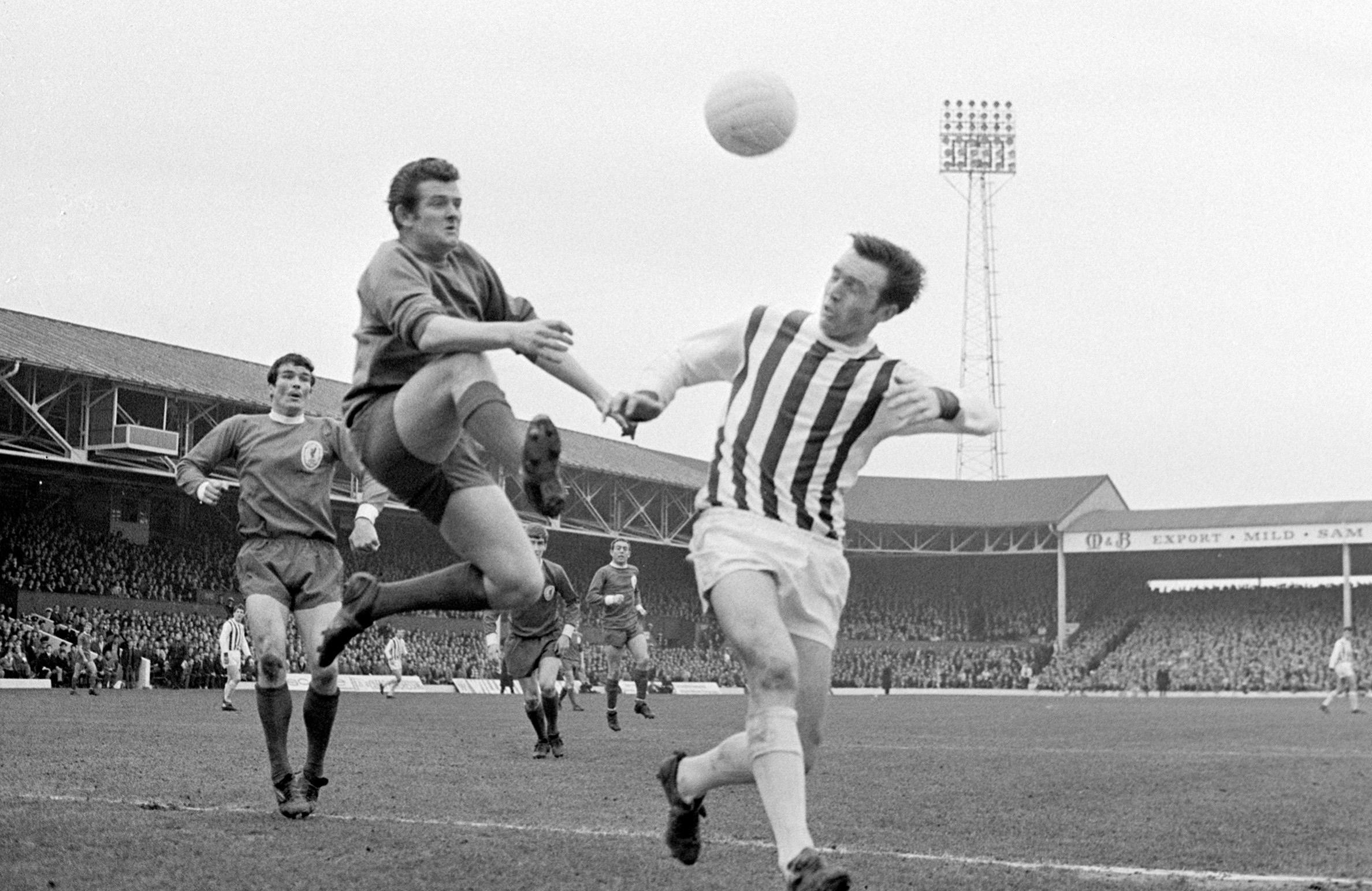Study commissioned by FA and PFA establishes link between football and dementia

A study commissioned by the Football Association and the Professional Footballers’ Association published on Monday has established a link between football and dementia, 17 years after Jeff Astle died with what a coroner described as an “industrial injury”.
Since the former England and West Brom striker’s death, the families of dozens of other ex-footballers, including several from England’s 1966 World Cup-winning squad, have come forward to reveal their stories of dealing with dementia and related illnesses.
In November 2017, the FA and PFA commissioned a study titled ‘Football’s Influence on Lifelong Health and Dementia Risk’ or FIELD for short which was led by consultant neuropathologist Dr Willie Stewart of Glasgow University.

The report assessed the medical records of 7,676 men who played professional football in Scotland and were born between 1900 and 1976, with their records matched against more than 23,000 individuals from the general population.
It discovered former footballers were approximately three-and-a-half times more likely to die from neurodegenerative disease than the general population.
“My overall feeling is that I am staggered even though my own research and instinct was always that there was a serious problem,” said Dawn Astle, Jeff’s daughter, who has been campaigning since the death of her father, for football to research into this area.
“There will be no celebrations. It doesn’t bring my dad back, it won’t bring any other dads and husbands back. We knew dad could not be the only one. We just wanted that question answered.
Get FourFourTwo Newsletter
The best features, fun and footballing quizzes, straight to your inbox every week.
#dementiainfootball 💔💔 pic.twitter.com/HPTW0dWXgw— Dawn Astle (@DawnAstle9) October 21, 2019
“We just wanted to see that football cared enough to find out the scale of the problem, to do the right thing and be there for these people when they need them most. Whatever they do it, it must be across all parts of the game.
“You can’t assume it is not in grassroots and there is no evidence it is generational or that it was the old leather ball. And these players who have suffered dementia must not be a statistic – they must never be forgotten. They remain in the consciousness of the game.”
Stewart’s findings report that the “risk ranged from a five-fold increase in Alzheimer’s disease, through an approximately four-fold increase in motor neurone disease, to a two-fold Parkinson’s disease in former professional footballers compared to population controls”.
Today, the FIELD study – funded by the PFA and The @FA – has announced its findings regarding ‘Football’s InfluencE on Lifelong outcomes and Dementia risk’. Here, Gordon Taylor, explains the study. pic.twitter.com/FCTQthZt0J— PFA | Professional Footballers' Association (@PFA) October 21, 2019
Although footballers had higher risk of death from neurodegenerative disease, they were less likely to die of other common diseases, such as heart disease and some cancers, including lung cancer.
The study found that deaths in ex-footballers were lower than expected up to age 70, and higher than expected over that age.
Dr Carol Routledge, director of research at Alzheimer’s Research UK, said: “The first thing that was needed was to show there was an increase in the risk of dementia for former professional footballers.
“Now that has been set, for me we can start and Alzheimer’s Research UK would like to globally call for an increase in research funding which the FA and PFA are committed to.”
Ex-pro footballers are 3.5x more likely to die from dementia, says new @FA & @PFA research. Findings are an important first step in showing if link between football & dementia exists. But study didn't explore reasons behind increased risk.— AlzheimersResearchUK 🍊 (@AlzResearchUK) October 21, 2019
The FA’s head of medicine Dr Charlotte Cowie added: “Not just me, but the whole of our advisory group have a fear that people may start to feel football isn’t good for you.
“Although the headline may be ‘dementia is three-and-a-half times more common’, actually the findings are that footballers live longer than the controlled population.
“They had less heart disease, less lung cancer and some of the big killers in our society, they were protected from. The last thing we want is for people to stop playing or to think football is not safe.”
Peter McCabe, CEO of Headway – the brain injury association, added in a statement: “We welcome the work done by Dr Stewart and his team, but this study was always going to leave a lot of questions unanswered.
Headway calls for more research into the effects of heading modern footballs following a study showing former professional footballers are three and a half times more likely to die of dementia than people of the same age range in the general population.https://t.co/WiDQC2GMVi— Headway (@HeadwayUK) October 21, 2019
“We have known for some time that there is a link between the cumulative effect of repeated blows to the head – such as those suffered by boxers – and degenerative neurological conditions such as dementia.
“The fact that this long-awaited study has now identified a link in former footballers will no doubt lead to questions about how this will impact the modern game.”
While the report discovered an increase in the risk of Alzheimer’s, Motor Neurone disease and Parkinson’s for footballers, it was unable to establish whether the cause was due to concussion, repeated concussions or other factors.
Therefore more research is needed.
‘A much-needed piece of research’— The FA (@FA) October 21, 2019
Bobby Barnes, PFA deputy CEO, concluded: “The game I played in the eighties and nineties is a very different game to the one being played today. That is far from us being complacent and saying all is well because it is not.
“That is why we are all campaigning so hard to actually make sure as best and as safe as possible a safe work place is created for our members.
“We have to keep pushing. We have to keep funding this sort of research and ensure the next generation of players are not looking at statistics of one in three-and-a-half.”
The FA said it had written to FIFA and UEFA to offer its full support on future research in this area as well as share the findings of the study with them.
FourFourTwo was launched in 1994 on the back of a World Cup that England hadn’t even qualified for. It was an act of madness… but it somehow worked out. Our mission is to offer our intelligent, international audience access to the game’s biggest names, insightful analysis... and a bit of a giggle. We unashamedly love this game and we hope that our coverage reflects that.

